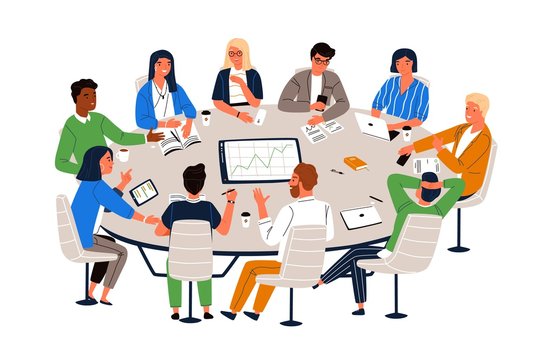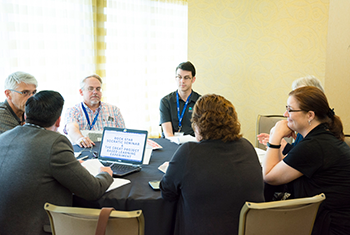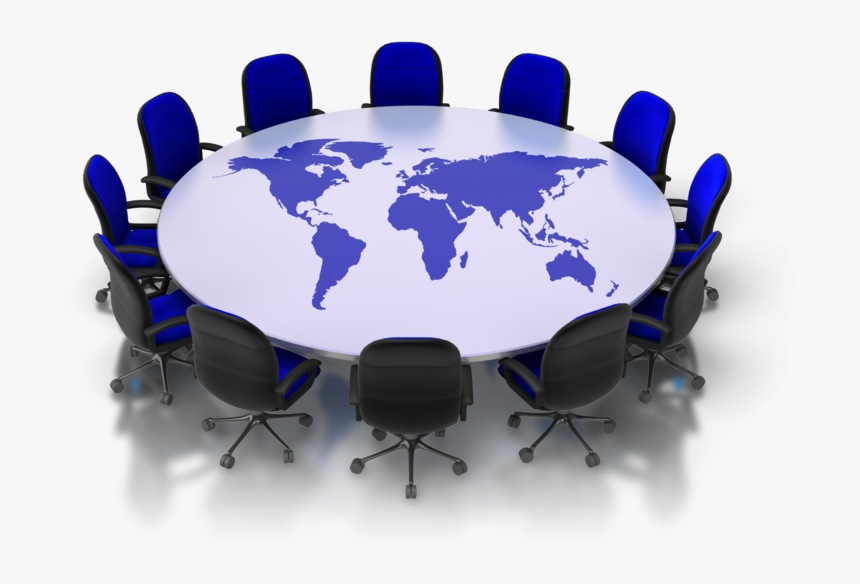Navigating the World: The Importance and Benefits of Round Table Discussions
Related Articles: Navigating the World: The Importance and Benefits of Round Table Discussions
Introduction
With enthusiasm, let’s navigate through the intriguing topic related to Navigating the World: The Importance and Benefits of Round Table Discussions. Let’s weave interesting information and offer fresh perspectives to the readers.
Table of Content
Navigating the World: The Importance and Benefits of Round Table Discussions

The concept of a "world map round table" is not a literal gathering around a physical map. Instead, it refers to a metaphorical framework for global dialogue and collaboration, where diverse perspectives and expertise are brought together to address complex international issues. This approach emphasizes inclusivity, multi-stakeholder engagement, and a shared understanding of global challenges and opportunities.
Understanding the Concept:
A world map round table envisions a dynamic process of discussion and decision-making that transcends geographical boundaries. It seeks to create a platform where individuals, organizations, and governments from across the globe can engage in meaningful dialogue, fostering mutual understanding and cooperation. The essence of this approach lies in its focus on:
- Inclusivity: Recognizing the interconnectedness of global issues, the round table strives to include diverse voices, ensuring representation from various regions, cultures, and sectors. This inclusivity is vital for achieving comprehensive solutions and ensuring equitable outcomes.
- Multi-Stakeholder Engagement: By bringing together various stakeholders, including governments, civil society organizations, businesses, academia, and communities, the round table creates a platform for shared responsibility and collective action. This collaborative approach fosters a sense of ownership and accountability for addressing global challenges.
- Shared Understanding: The round table aims to facilitate a common understanding of the complexities of global issues through open dialogue and exchange of knowledge. This shared understanding forms the basis for effective collaboration and the development of sustainable solutions.
Benefits of the Round Table Approach:
The world map round table approach offers several benefits for addressing global challenges:
- Enhanced Collaboration: The platform fosters collaborative problem-solving by bringing together diverse perspectives and expertise. This collaborative approach leads to more innovative and effective solutions that address the complexities of global issues.
- Increased Transparency: The round table promotes transparency by providing a platform for open dialogue and information sharing. This transparency builds trust and accountability, fostering a more equitable and inclusive global community.
- Improved Communication: The platform facilitates communication and understanding between different stakeholders, fostering a more informed and nuanced understanding of global issues. This enhanced communication leads to better policy decisions and more effective implementation.
- Greater Impact: By uniting diverse stakeholders, the round table amplifies the impact of individual efforts and creates a collective force for positive change. This collective action is essential for tackling global challenges that require coordinated efforts.
Examples of World Map Round Table Applications:
The world map round table approach is applicable to a wide range of global issues, including:
- Climate Change: Bringing together governments, businesses, civil society organizations, and communities to address the urgent need for climate action, fostering collaboration on sustainable development and mitigation strategies.
- Global Health: Facilitating dialogue and cooperation between health organizations, governments, and communities to address global health challenges like pandemics and infectious diseases.
- Sustainable Development: Promoting collaboration between stakeholders in the public, private, and civil society sectors to achieve the Sustainable Development Goals and ensure a more equitable and sustainable future for all.
- Peace and Security: Creating platforms for dialogue and conflict resolution, bringing together governments, civil society organizations, and communities to address conflict and promote peace.
FAQs on the World Map Round Table Approach:
Q: What are the key challenges in implementing a world map round table approach?
A: Implementing a successful world map round table requires overcoming several challenges:
- Ensuring Equal Representation: Balancing the voices of different stakeholders to avoid domination by powerful actors and ensure equitable participation for all.
- Bridging Cultural and Linguistic Differences: Facilitating communication and understanding across diverse cultures and languages to ensure meaningful dialogue.
- Managing Diverse Interests: Reconciling competing interests and finding common ground among stakeholders with different priorities and objectives.
- Building Trust and Accountability: Cultivating an environment of trust and accountability to ensure that commitments are fulfilled and progress is made towards shared goals.
Q: How can the world map round table approach be made more effective?
A: To enhance the effectiveness of the world map round table approach:
- Developing Clear Objectives and Outcomes: Defining specific goals and desired outcomes for each round table discussion to ensure a focused and productive dialogue.
- Establishing Strong Governance and Leadership: Implementing clear governance structures and appointing effective leaders to guide the process and ensure accountability.
- Utilizing Appropriate Technology and Tools: Employing technology to facilitate communication and collaboration, including online platforms, video conferencing, and data visualization tools.
- Promoting Continuous Learning and Evaluation: Regularly evaluating the effectiveness of the round table approach and adapting strategies based on feedback and insights gained.
Tips for Implementing the World Map Round Table Approach:
- Start with a Clear Purpose: Define the specific issue or challenge to be addressed and articulate the desired outcomes of the round table discussion.
- Engage Diverse Stakeholders: Ensure representation from various sectors, regions, cultures, and perspectives to foster a rich and inclusive dialogue.
- Establish a Facilitative Environment: Create a safe and respectful space for open dialogue, encouraging active listening and constructive criticism.
- Develop Common Ground: Identify areas of shared interest and common goals to build a foundation for collaboration and collective action.
- Measure Progress and Evaluate Outcomes: Regularly assess the impact of the round table discussions and identify areas for improvement to ensure ongoing relevance and effectiveness.
Conclusion:
The world map round table approach offers a powerful framework for addressing global challenges by fostering dialogue, collaboration, and collective action. By embracing inclusivity, multi-stakeholder engagement, and a shared understanding of global issues, this approach can contribute to a more equitable, sustainable, and peaceful world. While challenges exist in implementing this approach, its potential benefits are significant, making it a valuable tool for navigating the complexities of the 21st century and shaping a brighter future for all.








Closure
Thus, we hope this article has provided valuable insights into Navigating the World: The Importance and Benefits of Round Table Discussions. We thank you for taking the time to read this article. See you in our next article!
